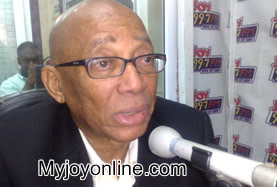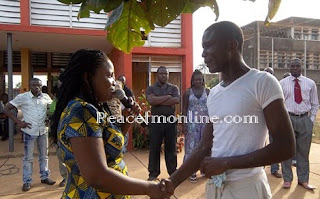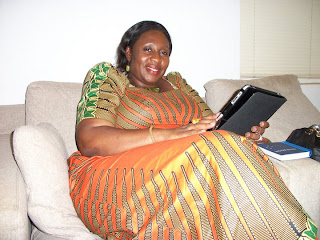We cannot take Ghana's peace for granted - Emile Short

The former head of the Commission for Human Rights and Administrative Justice (CHRAJ), Dr. Justice Emile Short has warned that Ghanaians cannot be complacent with the prevailing peaceful political atmosphere as the country can be plunged into political turmoil if care is not taken.
Dr. Emile Short who went on compulsory retirement in December last year said the lessons learnt whiles serving on the International Criminal Tribunal for Rwanda in Arusha, Tanzania on the Rwandan genocide proves that any country which fails to manage its political differences properly can easily face such political unrest - as witnessed by Rwanda - despite the level of tranquility in the country.
Speaking on Joy FM’s Super Morning Show with Bernard Nassara Saibu, Dr. Emile Short said “we cannot be complacent. Conflict can erupt without any notice whatsoever. These were people who were living side by side in peace – Hutus and Tutsi – and yet within a flash the genocide started and within a matter of three months, about a thousand people had been killed.”
“When I look at our political scene for example, at the moment, we find that our politics has become very divisive characterized by insults and abuses and so on,” he said adding, Ghana needs to learn from countries which used to be oasis of peace until such political intolerance destroyed them.
He said such conflicts have left many countries in the doldrums of underdevelopment, political instability which have all derailed previous progress made in by these countries in the areas of poverty reduction, disease control and education.
"We should not take our peace for granted. We must safeguard it and even as we move towards the elections next year, I think that we all have to be praying and we all have to try and prevail upon those in politics to exercise maximum restraint,” the renowned human rights activist said.
He went on to state that the ethnic clashes in the past and the recent killing of the Ya-Na are events that the country needs to watch carefully because as far as he is concerned “these conflicts have a potential to assume greater dimensions”.
He said the politicization of such conflicts are issues that need to be examined.
Dr. Emile Short said the situation where politicians question the independence of the judiciary also worsens the situation and leaves the judiciary vulnerable and susceptible to unnecessary and mostly baseless political bashing.
He therefore called on people who have evidence that officers of the courts are tainted to prove the accusations or refrain from making such damning allegations.
"In an attempt to gain political advantage, most politicians make statements I will consider to be unnecessary, provocative and also have a tendency to arouse emotions of supporters of one faction or the other and therefore I think that the politicians have to exercise the greatest restraints," he asserted.
Touching on bottlenecks that frustrate the gains being made in ensuring that human rights are upheld and protected, Dr. Emile Short said Ghana has made some positive strides in areas such as freedom of expression but maintained that the abuse of rights of individuals considered to be criminals who are kept in remand is still high.
According to him, the Justice For All programme - which is designed to attend to suspects who have been on remand for years without having their cases heard - is doing a lot to ameliorate the situation but added a lot more needs to be done to protect the rights of remand prisoners.
"I think that there is not enough coordination between the various criminal justice arms – the police, the prison office, the courts and the Attorney Generals’ Office.”
He said prisoners in condemned cells and awaiting the execution warrants which the sitting President and his predecessors have failed to sign are not being treated fairly, stressing “that is a violation of their rights.”
He described the conditions such criminals live in as “horrific” and “horrendous.”
He therefore urged the law makers and the judiciary to consider introducing the community service programmes for non-felony crimes which will help decongest the prisons.
Touching on the controversial issue of gay rights, Dr. Emile Short said “every individual, whether an armed robber, a homosexual, or a criminal of any kind has a place in our society.”
He however said the appropriate institutions should be able to clearly define the rights. He said homosexuals have social and economic rights such as the right to employment.
He said the thorny issue is about whether or not these people have a right to marry, stressing the need for parliament to come out clearly on this issue which is gradually becoming a national issue.
Story by Derick Romeo Adogla/Myjoyonline.com/Ghana



Comments
Post a Comment